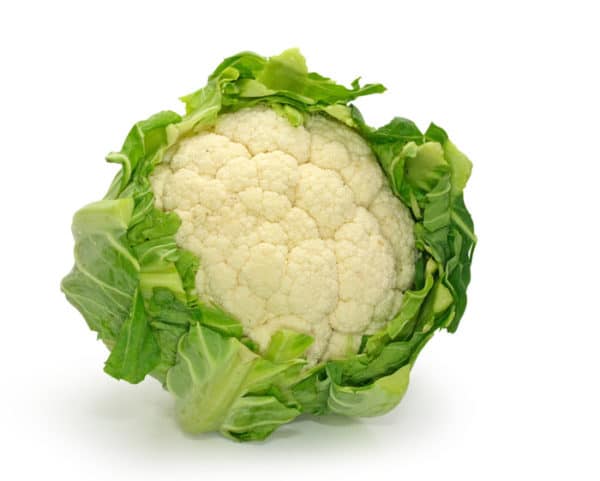

The previous blog post on isothiocyanates offered a good example of a situation where a little detective work might have led you to “titrate” your client’s consumption of otherwise healthy veggies just to test your suspicions. Being the “go-to” practitioner often means digging in deep to figure out the true problem.
In this post in the series I’ll be talking more about leaky gut and inflammation. I briefly touched on leaky gut earlier in the series, but I will discuss it a bit more in this blog post.
This is part 4 of my blog post series on “When Eating More Greens is Not a Good Idea”. Again, the five examples I am discussing with you in this blog series where greens may cause worsening symptoms in your client are rare…but it is still good to be aware of them– and be able to recognize them– in case these clients come to you.
If a client has a gut problem, it needs to be healed!
If you’re finding that your client isn’t tolerating additional greens in their diet, especially uncooked ones, they may have a leaky gut issue or other inflammatory bowel issue.
Leaky gut has become very common due to the prevalence in the current American diet of an increasing amount of highly processed food, gluten, and sugars. It’s exacerbated by chronic stress, infections (candida/yeast, parasites), and toxins in the environment. Toxins can include things like everyday medications!
Leaky gut happens within the small intestine when the gut lining becomes damaged. Poor eating habits, stress, infections, and environmental toxins can disrupt what the intestines pass into the blood-stream. The small intestine is semi-permeable and is meant to let only small, fully digested molecules pass thru.
Undigested protein rots and putrifies in the digestive system. Every time those particular foods touch the lining of the small intestine, an inflammatory immune response is created, which further damages the lining. This damage creates tears in the lining and causes the small intestine to allow larger-than-usual food molecules and even toxins to enter the blood stream. The immune system recognizes these as foreign invaders and attacks them…and can also attack body tissues as well. This causes autoimmune diseases, joint pain, mental fog, hives, and a wide variety of other symptoms.
A client experiencing leaky gut or other gut health issues is very likely to have a lot of gastrointestinal irritation. They are also very likely to show signs of food sensitivities. They may not be able to tolerate a lot of seemingly healthy foods – including raw leafy greens – until you heal their gut.
Common Signs and Symptoms of Leaky Gut
So put on your detective’s hat and start asking questions…does your client have some of these typical leaky gut symptoms?
- Gastrointestinal complaints: Abdominal pain, bloating, constipation, diarrhea, gas, indigestion, heartburn, food allergies, and sensitivities
- Neurological disturbances: Anxiety, confusion, foggy thinking, mood swings, poor memory, nervousness, even aggressive behavior
- Breathing troubles: Shortness of breath, asthma
- Immune System Imbalances: Poor immunity, allergies, autoimmune diseases, recurrent bladder infections, recurrent vaginal infections
- Skin problems: Skin rashes, eczema, psoriasis
- Other symptoms: Chronic muscle pain, fatigue, hormone imbalances, chronic joint pain
Along with looking at their symptoms, do a thorough health history and determine if they are taking ibuprofen or other nonsteroidal anti-inflammatory drugs (NSAIDs), or antibiotics. These medications increase the likelihood of your client developing leaky gut.
I teach practitioners in my Clinical Mastery of the Digestive System (CMDS) online program exactly what causes leaky gut, how to test for it, and how to correct it. One of the tests I like is the Cyrex Labs Array 2 – Intestinal Antigenic Permeability Screen.
What can you do to heal your client’s leaky gut?
There are a variety of steps to consider:
- Start the healing process by having your client take in the right nutrients to help repair the small intestine lining.
- Removing the unhealthy foods is a must! All processed foods, coffee, alcohol, sugar, and gluten!
- Avoid sugar and all artificial sweeteners. Stevia is good and generally well tolerated. Sugar alcohols can be irritating to the gut in many people, except for erythritol, which is well tolerated by most.
- Slippery Elm tea is good for gut repair; take before each meal (you can add mint essential oil or cinnamon for taste)
- Cinnamon, cardamom, and clove are good anti-inflammatory spices and herbs.
- Omega-3 fat-containing foods are good anti-inflammatory foods.
- Healthy fats are easy on the gut and promote healing; try avocados and coconut.
- Fermented vegetables contain probiotics vital to help repair a leaky gut. They also balance the pH in the small intestine. Try having your client add some to their daily diet; try kimchi, sauerkraut, or kefir.
- Glutamine is a good supplement that can be used for leaky gut (unless your client is sensitive to MSG). It is an amino acid that helps heal the intestinal lining.
- Quercetin is a good anti-inflammatory.
Strengthen your client’s digestive function to improve the assimilation of food
- Recommend digestive enzymes with meals. Raw foods help to increase natural enzymes, but might be irritating if not well chewed or blended. Green juices are usually well tolerated.
- Improve hydrochloric acid (HCl) production using bitters.
- Supplement with HCl if indicated, but proceed with caution. Do an HCl challenge to determine if and how much they need.
- Improve zinc status with zinc rich-foods and supplemental zinc, preferably in ionized liquid form.
- Work to strengthen your client’s immune defense
- Have your client take a high quality probiotic.
- Use immune-boosting herbs and essential oils.
- Avoid all allergens and potential allergens.
- Help your client heal and get them to relax!
- They need to chew their food…a lot! (chewing breaks down the food and also creates more surface area to be available for the enzymes to break the food down, as well as extract the nutrients out of that food).
- Have your client try steamed veggies which may be easier to digest and can help promote leaky gut repair. Green juices, blended foods, and smoothies may also go down more easily.
- Help your client learn to relax…suggest they give HeartMath® a try! A relaxed gut can better digest food and heal.
- Have them hydrate all day long, except around and during meal times.
So what’s another reason your client might have an issue with additional greens? In Part 5 (the final blog) of this series, I will be talking about stomach acid.
I hope you are finding this series informative! If you have any thoughts or questions, please leave them in the Comments section below.
In my Nutritional Endocrinology Practitioner Training (NEPT) program, I offer over 200 hours of training and mentorship that can impact your client’s ability to heal. Learn more about the NEPT training and other practitioner-focused resources, programs, and tools by applying at http://www.NEPTApply.com!
Share this:

Are you feeling stuck?
Do you feel as if something is missing from your practice that's keeping you from delivering breakthrough outcomes for your clients?.
Recent Posts
Our Programs
Nutritional Endocrinology Practitioner Training (NEPT)
The Mastery and Certification tier is our flagship program and provides everything you need to feel confident as a practitioner who knows how to get results that lead to healthy and happy clients.
Functional Assessment Mastery
Explore the relationships between the most important hormones and their relationship with nutrition.
Functional Nutrition Mastery
Learn how to support your clients to eat and supplement in a way that reduces and eliminates chronic symptoms.
Medical Disclaimer: The information on this website is not intended to replace a one-on-one relationship with a qualified health care professional and is not intended as medical advice. It is intended as a sharing of knowledge and information from the research and experience of Dr. Ritamarie Loscalzo, drritamarie.com, and the experts who have contributed. We encourage you to make your own health care decisions based upon your research and in partnership with a qualified health care professional.
Disclosure: Sometimes (but not always), when I share resources in my programs, newsletter, and on my website, I'm using an affiliate link, which means I do make money if you buy. My credibility is extremely important to me; therefore, I only endorse the products, services, and people I believe in. DrRitamarie.com is independently owned and the opinions expressed here are my own.
Click here to see our Privacy Policy.



 Strengthen your client’s digestive function to improve the assimilation of food
Strengthen your client’s digestive function to improve the assimilation of food








